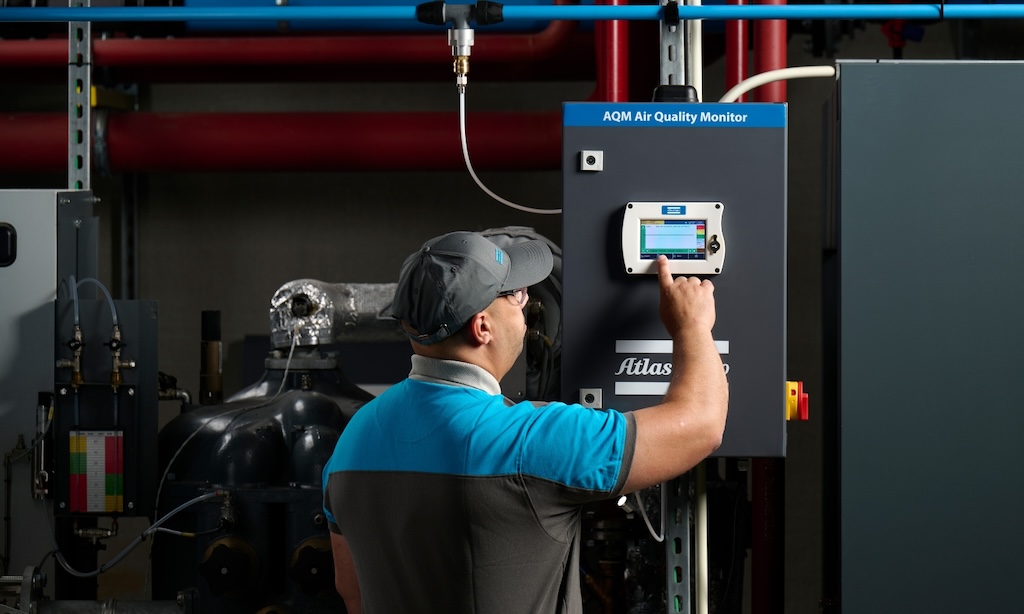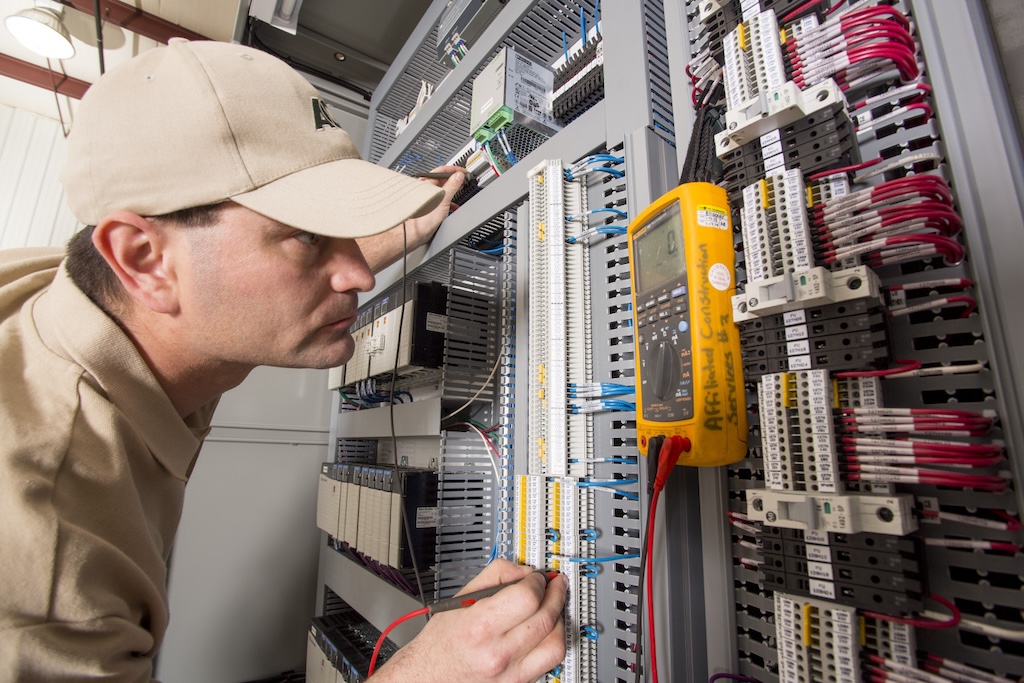The process of pultrusion is slow. It brings thousands of fiberglass threads together with resin, forced through a die that creates polymer structural composite building blocks. They are as strong as steel, but lighter, non-conductive and corrosion resistant. The resin and glass can be shaped into any form, from shovel handles to ladder supports to walkways.
The process of pultrusion is slow. It brings thousands of fiberglass threads together with resin, forced through a die that creates polymer structural composite building blocks. They are as strong as steel, but lighter, non-conductive and corrosion resistant. The resin and glass can be shaped into any form, from shovel handles to ladder supports to walkways.
In contrast, the business of pultrusion at Strongwell is moving at the speed of light. Tucked in the shadows of the Blue Ridge Mountains, Strongwell’s Bristol, VA headquarters and a nearby facility 20 miles up the road are growing rapidly, as new applications for the fiber-reinforced polymer composites are being found everywhere from their own backyard to Iraq.
| The process of pultrusion is a slow and steady effort, but it has been a growth market for Strongwell in Bristol, VA area. Molds and forms allow the combination of figerglass and resin to be formed into almost any shape, making a lightweight and strong product that can be used in construction. Photo courtesy of Strongwell |
“Business is really strong,” said Strongwell COO Keith Liskey. “Companies want to use composite products, but often don’t know how. We help them figure out how to use composites. We’re making our own machinery and our own dies and tools.”
Strongwell just opened a 15,000 square-foot expansion in Bristol, and announced plans for a 57,000 square foot addition at its plant on 36 acres in nearby Washington County. It has found new markets and new applications for reinforced polymers, and that has Strongwell poised for rapid growth.
“Cooling towers are a hot market,” Liskey said. “They’re traditionally made of wood, and now they’re going to fiberglass.” Strongwell has developed a fiberglass grid that replaces rebar in roadway construction. The company also built, assembled and shipped a drawbridge for Barbados that was put together on site.
The latest projects include ballistic armor panels for use in military buildings in Iraq, and ultimately to vehicular armor that can withstand a full-scale attack.
The growth profile puts additional money to the bottom line, but it also puts additional pressures on staffing. “We’re always looking for opportunities to leverage good people,” said Steve McNeely, Strongwell’s director of pultrusion operations. “They are the lifeblood of our operation.”
Like the intermingled fibers and resin that make up its products, Strongwell makes sure at every step that senior staff gets to know a lot about the people they hire. Workers receive incentives for bringing qualified family and friends to work at Strongwell. Part of the two-week training program involves designating trainers to lead new hires through the orientation process, then rewarding the trainers for a successful process.
The workers are honored as well. “We send a letter that congratulates the family, that tells them we’re pleased with the progress made and we give them a plaque,” McNeely said. “I’ve had previously certified workers come to me to ask if they could get a plaque. We do a great job of establishing an ’emotional bank account’ with our employees, and then making deposits into that bank account. It’s amazing how much you can learn about people.”
| The process of pultrusion at Strongwell combines thousands of fiberglass threads with resin. Forced through a mold, the combination can take any shape or form, from ladder rails to I-beams. Photo courtesy of Strongwell |
Doing extra things
The need to focus on people as much as process is driven by the way manufacturing is changing at the ground level. “There’s a great demand for good people,” McNeely said. “So we have to do extra things. We need to build our team to meet the needs of the expanding business. These are not just parts.” The effort, which starts from the top with owner John Tickle, has helped double Strongwell’s retention rate. “It’s amazing to me how much John knows about the people here,” McNeely said.
The widening use of fiber reinforced structural composites has Strongwell looking to global opportunities. “We’ve had a look at China, and we’re thinking now about India,” Liskey said. “India has a lot of advantages. There are many opportunities there. We’d be able to serve the Far East, which has a growing interest in this product. However, we wouldn’t build there to ship back here.”
Strongwell has a product that is at once strong and moldable. It makes great things, and strives to make them better. “Because of the custom business, a lot of our time is in setting up, cleaning up and getting ready to run. We have a ‘do it right the first time’ program for the set-up on machines,” McNeely said. “We have checkoffs and check sheets to ensure the work is done well. By doing this, we’ve cut the machine downtime from 40% to less than 10%.
“We’ve invested in new equipment. We’ve invested in training to try and minimize scrap,” he added. “We’ve measured downtime, including unscheduled downtime. What gets attention, gets measured and gets improved.”
Improvement — even for product in high demand that creeps through the manufacturing process at an almost imperceptible speed — is a continuous process as well. “It’s a long, tedious process,” McNeely said. “But improvement is critical to run a custom manufacturing process.”
AT A GLANCE
Company : Strongwell
Locations : Corporate headquarters, Bristol, VA; Washington County, VA and Chatfield, MN; sales offices nationwide and in Reading, U.K.
Size : 564,000 square feet of manufacturing space, 250 pultrusion lines
Employees : 750
Products : Pultrusion manufacturing, molded grating, fabricated fiberglass and custom machine building for the industry
Trivia : Among Strongwell’s early products were fiberglass ladder rails used to make benches for the 1964 World’ Fair in New York.
Is your plant a TOP PLANT?
Nominations are now open for Plant Engineering’s 2007 Top Plant awards, honoring excellence in manufacturing. Entry forms are now available at the home page at



